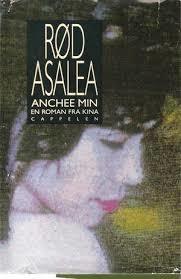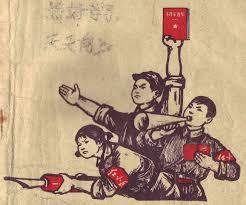What do you think?
Rate this book


289 pages, Hardcover
First published January 1, 1993

The moment I touched her breasts, I felt a sweet shock. My heart beat disorderly. A wild horse broke off its reins. She whispered something I could not hear. She was melting snow. I did not know what role I was playing anymore: her imagined man or myself. I was drawn to her. The horse kept running wild. I went where the sun rose. Her lips were the color of a tomato. There was a gale mixed with thunder inside of me. I was spellbound by desire. I wanted to be touched. Her hands skimmed my breasts. My mind maddened. My senses cheered frantically in a raging fire. I begged her to hold me tight. I heard a little voice rising in the back of my head demanding me to stop. As I hesitated, she caught my lips and kissed me fervently. The little voice disappeared. I lost myself in caresses.And the end:
We did not want to realize that we had been holding on to something, a dead past that could no longer prosper. We were rice shoots that had been pulled out of the mud. We lay, roots exposed. But we did not want to submit. We would never submit. We were heroines. We just tried to bridge the gap. We were trying our best. The rice shoots were trying to grow without mud. Trying to survive the impossible. We had been resisting the brutality of the beating weather. The hopelessness had sunk into the cores of our flesh. I would not let her see me cry. But she saw my tears in the kisses.I read for many reasons, mainly for self-improvement but also for the desire to hear the words of someone a world away in a life that I will never experience, to understand and relate to the innate humanity of those who by chance of birth differ from me in terms of race, culture, sexuality, and a whole host of myriad aspects both physical and ideological. This book achieved exactly that, and I only wish that there were more like it.
She had a pair of fiery, intense eyes, in which I saw the energy of a lion. She had weather-beaten skin, thick eyebrows, a bony nose, high cheekbones, a full mouth, in the shape of a water chestnut. She had the shoulders of an ancient warlord, extravagantly broad. She was barefoot. Her sleeves and trousers were rolled halfway up. Her hands rested on her waist. When her eyes focused on mine, I trembled for no reason. She burned me with the sun in her eyes. I felt bare. ..The two girls become each other's guardians and intimate soulmates. The back-breaking work mostly in water, where leeches feasted on their bodies, become the backdrop to their secret meetings of mind, body and spirit. It becomes their survival force.
Then she shouted, Don't any of you shit on my face! Don't any of you disappoint the glorious title of "The Advanced Seventh Company," the model of the entire Red Fire Farm Army! She asked whether she had made her point clear. And we, startled, said, Yes!
You see, we are going to go through a forest of guns and a rain of bullets to pay respect to our mothers. Mothers who, for thousands of years, lived their lives in shame, died with shame, were buried and rotted in shame. We are going to tell them, Now it is a new world. A world where being born female merits celebration and salute." ...The sinister motive behind the opera made into a movie, one of Madam Mao, Comrade Jiang Ching's famous works, is revealed in
"He asked me to remember the darkness of the night, to watch the marching steps of history, to watch how it was altered, to see how the dead were made up and made to speak." ...
"He was a man and a woman. His story was bad liquor. It poured into my throat and made me drunk with heat. This is what I want to see in your eyes, he said. A million bulls rushing down a hill with their tails on fire." ...
"He had never trusted the Chinese history books. Because those books were written by people who were impotent of desire. People who were paid by the generations of emperors. They were eunuchs. Their desires had been castrated."...
"I saw the glittering in his bright almond eyes. Pearls dripped slowly down his cheeks like a broken necklace."I cannot do justice the the picturesque, poetic prose of this memoir. The author relives her past, describing the utterly devastating conditions of urban dwellers, the inhumane policies of the regime, in which millions of people died from starvation alone, as well as the dire circumstances of the farm dwellers, in such vivid detail, that it becomes an unsettling and upsetting experience for the reader through most of the text. However, there are beautiful moments in which the beauty of the country and its people is recalled.